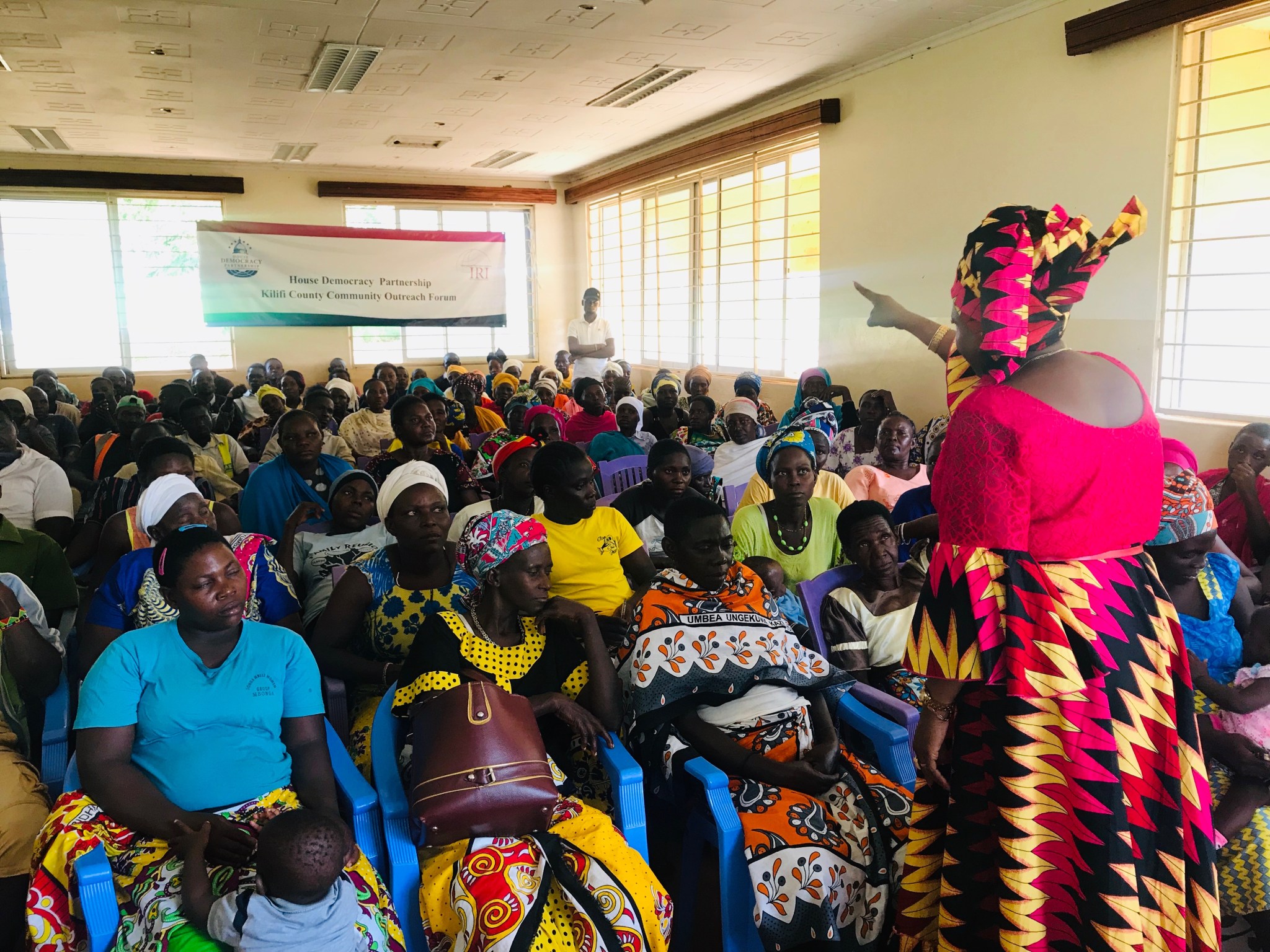
The gap between citizens and governments is a persistent problem in Kenya, leading to growing distrust in political entities by the citizens, a lack of transparency and accountability in governance processes, and an undermining of democracy.
In an effort to address this problem, the International Republican Institute (IRI) and the U.S. House Democracy Partnership (HDP) have worked together to provide Kenyan legislators with the opportunity to connect with their constituents in community engagement forums. Kenyan Member of Parliament Hon. Gertrude Mbeyu was able to reach around four hundred constituents through this program, tackling issues ranging from government service delivery and youth unemployment to gender-based violence.
Mbeyu was elected to the National Assembly, the lower house of Parliament, in 2017 and is one of 47 legislators popularly known as “women representatives,” whose seats were allocated as a result of a gender quota established by Kenya’s 2010 Constitution. During the week-long program, Hon. Mbeyu participated in four forums and was a guest on a talk show at Shungwaya FM, a community radio station.
Most participants represented traditionally marginalized groups such as women, youth and persons with disabilities. Constituents had the opportunity to learn about the programs that Hon. Mbeyu was implementing under the National Government Affirmative Action Fund (NGAAF), which is managed by women representatives in the National Assembly. Some of the programs that Hon. Mbeyu has implemented using the funds include provisions of school fees for needy students, youth economic empowerment programs and financial support to women-led micro-enterprises. Participants also received updates from Hon. Mbeyu on her legislative work and shared their priorities with her as well.
Some constituents noted that this was the first time they have interacted with any of their representatives since the 2017 general elections. As one participant said, “Most times, we only get to interact with our leaders when they come back hunting for votes. Hon. Mbeyu’s forum has been different though. I have learned a lot, and now I know what documents I need to put together to apply for funding for my start-up business through the NGAAF.”
Hon. Mbeyu also expressed her satisfaction with the outcomes of the forums:
“I was happy to engage with women and youth at such a close range and in a very nonpolitical setting,” she said. “Such public forums would normally always be politically-driven, and participants would only expect handouts from political leaders, and that is why most legislators shy away from holding community forums. The guidance and mentorship I received from HDP [and] IRI, however, made it so easy for me to talk to the citizens. For instance, while planning for the forums, IRI and I worked together to develop an agenda that would ensure that the forums are focused on a few critical topics, that there is ample time provided for participants to present their development priorities and that the feedback loop is closed from my end with a session on action-planning and next steps.”
Hon. Mbeyu plans to roll out additional community engagement sessions in the coming months to help address the pressing challenges Kilifi County is facing, including a rising rate in early teenage pregnancies. Mbeyu plans to share her constituency outreach experience with her parliamentary colleagues and hopes that it will be replicated by her counterparts to better serve Kenyans across the country.
Top